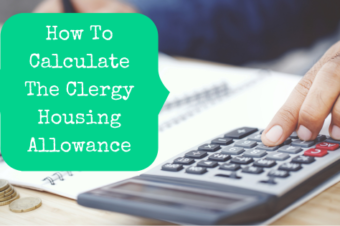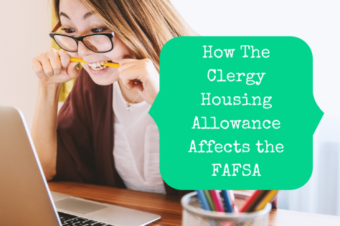About seven years ago, I decided I wanted to be able to help people with money. I had begun listening to Dave Ramsey to stave off the boredom of spending 12 hours a day alone with an infant and it was life-changing. I didn’t know much about money because my parents didn’t know much. All I knew was to work hard and save because eventually you always need money.
I also knew that finances have a profound impact on your life and your relationships. My mom was a single parent with six kids in southern California, so I had experienced firsthand the levels of stress and anxiety that can come from financial struggles. In listening to Dave Ramsey, I realized that helping someone get control of their finances can change their life, their marriage, their family, and their future for generations to come. I wanted to do that.
Two Avenues For Financial Advice
I began to research and discovered that there are basically two ways to provide people with one-on-one financial advice: as a financial coach or a financial advisor. They share a lot of similarities, but financial coaching is basically unregulated while financial advisors are subject to a lot of regulations because they work with investments and manage money for people. I’m really more interested in the people than the money, so I thought I would become a financial coach. After all, it would be a lot easier to get started without having to jump through hoops for regulators.
There was one problem, though. To discuss investments, you have to be registered as a financial advisor. While I didn’t want to manage investments, I felt that I wouldn’t be able to serve people adequately without being able to discuss investments. They are kind of an important part of personal finance, even if they aren’t your focus. So, I resigned myself to the fact that I would have to become a registered financial advisor and take on all of the regulatory burdens that come with it.
Now, this wasn’t a path I was heading down because I needed to make money, but rather because I wanted to help people. Regular, everyday people like my friends and family, who wouldn’t normally be able to afford personalized advice from an expert. I decided that I wanted to develop a level of expertise that I could charge $500/hour for, but offer it to people who could only dream of being able to pay that much.
What Is The CERTIFIED FINANCIAL PLANNER™ Designation?
In the financial advisory space, the CERTIFIED FINANCIAL PLANNER™ designation is the gold standard. There are numerous designations and certifications available, but the hardest and most respected is the CFP® designation, so that’s what I set my sights on. It was a pretty ambitious goal for a stay-at-home mom with no financial services experience.
Education
There are four requirements for certification. The first is education, which consists of seven college-level financial courses. To fulfill that, I enrolled in the University of Alabama’s Family Financial Planning and Counseling program as soon as both of my kids were in school full-time. Little did I know that they would be coming home full-time halfway through the program. In spite of it all, I completed my Master’s in December 2020 (and am now officially a homeschool mom to boot!).
Examination
The second requirement is an examination. You have to understand, this isn’t just a test like the final exams you took in college. This is a big, scary test. In 2019, only 62% of the people who took the test passed. They have to limit the number of times you can take it (5) because some people take it multiple times without being able to pass. It’s that hard.
Why? There are two reasons. First, it covers a ton of material (7 classes, remember?). Second, the question writers aim for the top of Bloom’s taxonomy. That means knowing the material and how to apply it is not enough, you have to be able to evaluate and analyze the information, which makes it seem very subjective. I know very intelligent people who have failed this test.
I studied hard for months and up until recently, passing felt absolutely impossible.
But on Friday, March 12, 2021, I passed on my first attempt. YAY!!!
Experience
Passing the exam is a big accomplishment, but it’s not enough for me to be able to call myself a CERTIFIED FINANCIAL PLANNER™ certificant. I need to have real-life experience as well. The requirement is either a 2-year apprenticeship doing financial planning under another CFP® professional or three years doing related work. I’ve already been at it for two years now, but it will still be several more years before I fulfill the experience requirement because I only work part-time (remember those two kids at home with me?). I’ll get there, though, because I love the team that I’m working with over at Guide Financial Planning.
Ethics
The final requirement is a commitment to a very high ethical standard and submission to a thorough background check. I think this one will be easy since Jesus has been my role model for a number of decades now. My background check will be pretty boring for them since I haven’t had a run-in with the law since I was 19 and curious to see how fast my car could go on an open, empty stretch of highway somewhere between San Diego and Sacramento.
This is an important requirement, though, because most people place the financial industry right down at the ethical bottom along with used car salesmen and Congress. I came across a statistic recently that 65% of people don’t trust the financial services industry to do what’s in the best interest of their clients. I want to help change that statistic and while I would ascribe to high ethics no matter what, I appreciate that the CFP® designation values and requires it.
What’s Next For Me
Does passing the exam make me a financial advisor? No. Because I haven’t met the experience requirement yet, there are a few more (much easier) hoops that I have to jump through in order to be registered as a financial advisor and legally able to provide financial advice for a fee. That’s next on my list and I’ll get it done soon. Until then, I will continue to build my expertise and serve you through this blog.
This has been a long, hard journey and more than once I have been asked or asked myself, Why are you doing this? It’s not like I have to go through this much trouble just to register as a financial advisor and it’s not like I need it to support my family. However, I have a strong conviction of the Lord’s direction for my life and if I’m going to do this, I’m going to do it with excellence. Whenever I start to doubt, I receive emails from my readers that remind me that I’m on the right path. This has been exhausting, but it is all worth it. Because YOU are worth it.











